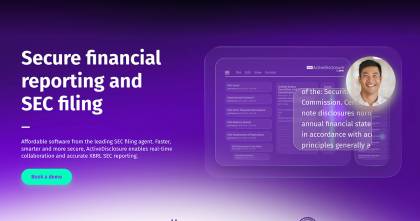Introduction to Financial Reporting Compliance
Financial reporting compliance is essential for public companies in the United States because it safeguards transparency, investor confidence, and overall governance. Both ICFR (Internal Control over Financial Reporting) and the Sarbanes-Oxley Act (SOX) play a crucial role in this landscape. ICFR refers to the processes and procedures designed to ensure financial statements are reliable and accurate, while SOX is the federal law that requires companies to adopt and maintain these controls. Together, they connect corporate governance with regulatory obligations, helping companies strengthen internal control, mitigate risk, and maintain accountability in financial reporting.
What is ICFR?
ICFR encompasses the policies, procedures, and processes implemented by companies to ensure that their financial statements are accurate, reliable, and compliant with GAAP. Leadership teams—most notably the CFO, internal audit, and control owners—are responsible for designing, executing, and monitoring these controls.
An ICFR audit evaluates whether these internal controls are effective. It also provides assurance to stakeholders that companies are proactively managing financial reporting risks and maintaining accountability. Internal audit and external auditor teams test controls to confirm that reporting aligns with required standards. Weaknesses in ICFR, such as a material weakness, can result in restatements, regulatory issues, and reputational harm.
What Is SOX?
SOX was enacted in response to major corporate scandals involving Enron and WorldCom. Its purpose is to establish higher standards for corporate accountability, financial disclosure, and oversight.
Key sox sections include:
- Section 302: CEO and CFO certification of financial reports.
- Section 404: Management and auditor attestation of ICFR.
- Section 906: Criminal penalties for false certification.
SOX compliance extends beyond ICFR to include requirements around auditor independence, records retention, disclosure controls, and broader governance. This framework ensures that companies maintain accountability in their financial practices.
ICFR vs SOX – Key Differences
While ICFR and SOX are closely related, they serve different roles. ICFR is a framework for internal control and financial reporting, whereas SOX is the law requiring companies to implement and evaluate these controls. In practice:
- ICFR is a set of controls and processes.
- SOX compliance is the broader regulatory requirement companies must meet.
- SOX Section 404 mandates management assessment and external auditor attestation of ICFR.
- SOX also covers elements such as auditor independence and data retention, which go beyond internal financial controls.
Thus, ICFR is part of the overall strategy to fulfill SOX requirements, but SOX governs a much broader compliance environment.
Oversight and Responsibility
Executives, internal audit teams, and external auditors all play roles in compliance with ICFR and SOX. Executives are required under SOX to certify financial statements in filings such as form 10 k. Internal audit teams evaluate sox controls, perform risk assessment, and remediate weaknesses. External auditors provide independent ICFR audit and auditor attestation under SOX Section 404(b).
The cycle typically includes documentation of controls, testing by both internal and external auditors, remediation of identified issues, and reporting to stakeholders. Disclosure controls and procedures work alongside ICFR to provide assurance that information required under regulation s k is reported accurately. In practice, this oversight process demands a high level of coordination between management, internal auditors, and the external auditor to ensure that gaps are quickly identified and resolved.
Executives are accountable not only for the accuracy of financial reports but also for demonstrating to regulators and shareholders that controls are effective and sustainable. External auditors, meanwhile, bring an independent perspective, ensuring transparency and building trust with investors who rely on these reports to make decisions.
Challenges in ICFR and SOX Compliance
Compliance is often resource intensive. Common challenges include unclear ownership of sox internal controls, manual reporting processes, disconnected systems, and the extensive documentation required. Companies also face risks of misstatements, shareholder lawsuits, and penalties if compliance is not met.
A material weakness in ICFR may trigger restatements, additional scrutiny from regulators, or negative investor perception. Failure to comply with sox requirements can expose companies to SEC enforcement actions, reputational harm, and higher audit costs. Strong internal auditor oversight and continuous risk management are essential to mitigate these risks.
Another significant challenge is keeping up with evolving regulatory expectations and changes in accounting standards, which can require companies to frequently reassess and update their control environments. The growing complexity of global operations and reliance on digital systems adds new risks around cybersecurity and data integrity, further complicating compliance efforts. Addressing these challenges requires dedicated resources, cross-functional collaboration, and often, investment in advanced compliance technologies.
Building a Strong Compliance Culture
ICFR and SOX are not just regulatory checklists—they underpin financial integrity. Building a strong compliance culture requires active participation across leadership, internal audit, and all control owners. Training, accountability, and clear governance structures support a sustainable compliance environment. Companies that integrate compliance into their culture can adapt more effectively to evolving risks and regulatory changes while enhancing investor confidence and governance standards.
Leveraging Technology to Support ICFR and SOX Compliance
Technology and expert services play a crucial role in supporting ICFR and SOX compliance. Solutions like SEC reporting software help companies streamline reporting, disclosure controls, and documentation processes. Advanced platforms centralize control tracking, workflow, audit trails, and reporting cycles. This not only reduces errors but also supports risk management and long-term compliance efficiency.
Providers such as DFIN offer tools and expertise to align ICFR with sox requirements and evolving standards. With platforms designed for SEC audits, investor relations, and digital transformation in finance, companies can strengthen compliance and reduce risk. For more in-depth information, see our SOX compliance guide, SEC audits, investor relations, and digital transformation in finance.
Organizations must recognize that ICFR vs SOX is not an either/or question but a complementary relationship. ICFR provides the framework for reliable internal control and reporting, while SOX enforces those standards under federal law. Together, they form the backbone of financial compliance and governance in the United States. Partnering with experts like DFIN ensures companies can navigate sox compliance confidently, strengthen financial integrity, and prepare for the future of regulatory oversight. Learn more about the difference a DFIN partnership can make!

